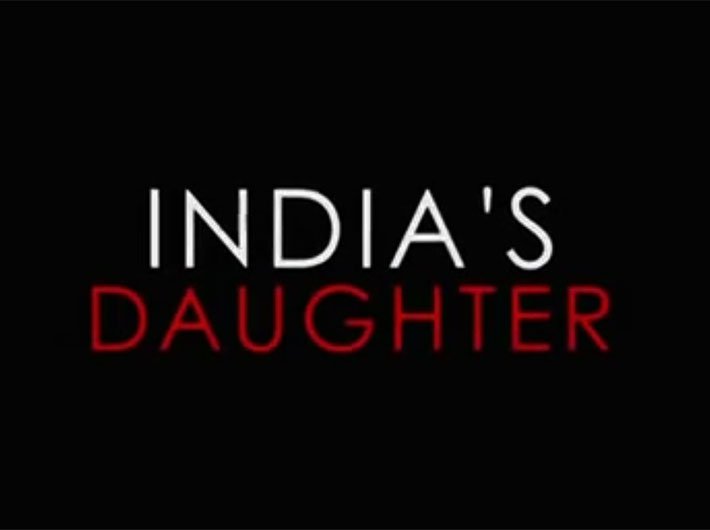Banning India’s Daughter makes the director’s case even stronger – that our guardians in parliament do not even want to hear the truth, leave alone trying to deal with it
"When being raped, she shouldn't fight back. She should just be silent and allow the rape. Then they'd have dropped her off after 'doing her', and only hit the boy," says Mukesh Singh in the now controversial BBC documentary by Leslee Udwin. The bus driver, along with five others, raped the 23-year-old physiotherapist on December 16, 2012 and has been sentenced to death by the Delhi high court (his appeal is pending before the supreme court).
The girl did not survive the brutal rape and assault. But she did not go without giving her assaulters a fierce fight, which, in turn, incensed them into attacking her more fiercely.
India’s Daughter, the documentary, in Udwin’s words, is “dedicated to a crucial cause in the public interest of women, not just in India but worldwide”.
Many in India differ.
More so is the NDA government, which banned it. Home minister Rajnath Singh was quick to threaten action against the BBC (as it advanced the telecast of the documentary originally scheduled for March 8, the international women’s day). Although he is not clear about what action he planned to take against a broadcaster in another country. Indian viewers, however, had to turn to YouTube and myriad other websites to watch the documentary – illegally.
YouTube too faced a threat of government “action”.
The ban had the undesired effect of making people watch and, even if they did not, discuss the ban and the documentary. Debates raged in parliament, on television, in offices and interestingly in homes.
There were some recurring themes in the arguments against the telecast and the documentary itself.
Why should we publicise a rapist’s views
This, arguably, is the central point against India’s Daughter. In an interview to Reuters, Udwin answers the question. “In order to progress, we have to understand. We must not be scared about looking at this, nor must we say we know it already... I have sat with several rapists for 31 hours. I have bothered to find out, and it’s important to find out. It’s important to know what the specifics are. You can’t just make some general assumption: ‘Oh they are negative about women’. You need the detail, you need to understand. Where does it come from? Who taught them that only 20 percent of women are good? So I’m afraid that those who think this is simply a platform [to a rapist to air his sickening views] are simply being ignorant.”
We knew that rapists in general, have a regressive attitude towards women, but did we know that this particular girl’s killers started with teaching her and her male friend a lesson for venturing out late evening? Or that they were out to have ‘fun’, essentially sex or rape, which they had apparently done many times earlier, but because their earlier targets were women from lower social background or sexual workers, it was never reported. Or, worse, they think gouging the eyes of a certain Barabanki rape victim was way more heinous than pulling out the intestines, which is what they did to their victim.
We needed to know that punishment alone is not going to change rape statistics in this country. Perhaps, we need a long-term strategy to make men think better of women and treat them with dignity. For those who are feeling outraged at hearing what a rapist thinks, Mulayam Singh’s ‘boys will be boys’ comment is no different from the former’s justification of ‘rape for fun’.
We should not allow a British filmmaker to pass judgement on our society
For journalists subscribing to such views, it could more be an issue of sour grapes as, much like the rest of Indians; our officialdom is also obsessed with all things foreign. So, a foreigner does stand a chance of being granted the required permissions much faster than an Indian, who might not get access (in this case to the killers lodged in Tihar jail) at all.
A Shekhar Kapur making Bandit Queen (and showing a young Phoolan Devi being raped by 13 men and subsequently being paraded naked) gets critical acclaim for making a realistic film, but when Danny Boyle makes Slumdog Millionaire, he is derided for selling India’s poverty and slums.
Much like our religion, our culture too need not be so fragile to disintegrate under the gaze of international media. Besides, when dictatorships around the world are falling like nine pins, is it ‘safe’ or even savvy for a democracy to close its doors on international media? A filmmaker will go where her subject takes her. If Udwin’s forte is women’s issues she has a right to chase the story of her choosing. Let Indian filmmakers find their prizewinning story in Peru or Uganda, or even the UK.
The two lawyers representing the accused do not stand for the legal fraternity of India
No Indian in his/her right mind can publically side with ML Sharma and AK Singh. Yet, many think like them. That they are a part of our judicial system should be questioned. The Bar Council of India serving them a show-cause notice is a miniscule, but direct, outcome of the documentary. A legal action against them may not serve the purpose, as any such action would set a precedent to muzzle free speech and a person’s right to his opinion – the very basis of this article.
The documentary, on the other hand, also features, and at great length, Justice Leila Seth, former judge of the Himachal Pradesh high court, and Gopal Subramanium, former solicitor general of India, who talk about the amendments to the criminal law that they suggested as part of the Justice JS Verma committee.
Women, however, need to hear Sharma saying, “Indian culture is the best. In our culture there is no place for a woman”, to get the point of view of several such legal eagles of our country. They need to feel the rage within, as also to feed it constantly with the help of such documentaries, to change such thinking, not only among men, but also women. Sadly, this may also lead to stereotypical attitudes towards all lawyers. Time, then, for an overhaul somewhere?
It identifies the victim, which is illegal
The documentary breaches this particular law. [In an interview, Udwin has clarified that the Delhi rape victim’s father did not want her to name his daughter in the Indian version of her documentary even though he permitted the use of the victim’s name for the international audience, a version of which is all what Indians have watched so far. A March 5 news report quoted her father, saying, "Despite clearly telling them not to make the name and photo of our daughter public, they have gone ahead with it and this is not right... we will take legal action against this".]
Yet, the same law that prescribes jail term of up to two years and/or fine for naming a rape victim provides for exceptions. This particular case makes for one.
Sub-section 2b and c of the Indian Penal Code 228-A (Disclosure of identity of the victim of certain offences etc), say: “Nothing in sub-section (1) extends to any printing or publication of the name or any matter which may make known the identity of the victim if such printing or publication is by, or with authorisation in writing of, the victim; or (c) Where the victim is dead or minor or of unsound mind, by, or with the authorisation in writing of, the next of kin of the victim.”
Even since The Guardian published her name, debate has raged if it was ethical to name the victim. Her parents have never objected to being named or identified. They even unsuccessfully campaigned to have the name of Nirbhaya Fund changed. It should carry their daughter’s real name to honour her courage and memory, they had argued. They agreed to be filmed for the documentary (It is not clear how Udwin could have followed the law for the Indian version, as the legality (to mask her identity) would have extended to showing the parents and her tutor in the documentary.
Besides, the name is on the internet and in various newspaper reports; and the parents, by agreeing to be photographed during public functions or otherwise, are in essence giving their permission to identify their daughter.
For the good or the bad, the advent of social media has ensured least privacy when one needs or desires it the most. It should only be shrugged off as collateral damage, because once it is done is done, no amount of subsequent masking of a victim’s name would erase her name from public memory.
What new fact can the documentary bring to light; we already know the case in detail
When did a documentary solve a case? What is the purpose of a documentary? It hardly ever brings out a new fact, or evidence. A critique on website Firstpost says it all even in its apparent disgust over Udwin’s ‘audacity’. “It is clear what the director perhaps intended to do: to try every trick in the book to maximise the impact of the story.” Yes, what else?
A rapist-murderer gets to justify his crime through the film
To borrow from Udwin’s answers in the Reuters interview: “It’s an illogical, stupid and uneducated opinion. In order to progress, we have to understand.” We shouldn’t shy away from the mirror even though we know it will not show us a pretty picture. We might consider “denting-painting” of our socio-cultural behaviour that has certainly gone bad ever since we gave the world the zero.
A white filmmaker was wrongfully given access to Tihar jail
If Udwin was granted access despite rules, the jail authorities should be the ones to answer. Going by her paperwork with the authorities (now made public), she does not seem to be in the wrong. Even if she is, all that the Indian government could do is to harass her Indian crew, which would be unfair. The home minister can’t be waging a war upon the UK to get Udwin extradited and executed in India for the alleged crime – precisely why a white filmmaker could be getting access, while Indians are left crying partiality. Well, plug the gaps to prevent future transgressions. Till then let us see how she stands as a filmmaker and let the controversy die its own death.
The documentary is in bad taste and has been badly made
Can the government please move aside and let the viewers decide for themselves? If the quality and taste were criteria, our TV screens would have been mostly blank all day.
A ban doesn’t work in the age of internet that has taken communication to a whole new level. You ban something only to make it all the more successful. What does it take the so-called internet and social media savvy government to learn that? Or, are they far ahead in deliberately making it a talking point? If only it was true.

